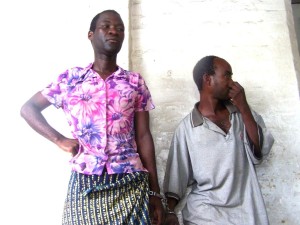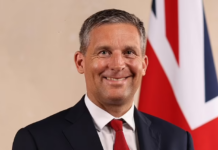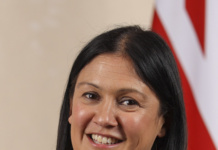Europe’s highest court has ruled that gay and lesbian citizens who face jail as a result of their sexuality can be granted asylum in any EU state.
The European Court of Justice (ECJ) made the ruling after the Netherlands Council of State petitioned for guidance on three gay Africans from Sierra Leone, Uganda and Senegal who had applied for asylum. The Netherlands previous standard for asylum seekers was whether they faced torture or death in their home countries. Dutch authorities had ruled that homosexuals could “exercise restraint” to avoid legal penalties; a view rejected by the ECJ on the grounds that someone’s “sexual orientation is a characteristic so fundamental to his identity that he should not be forced to renounce it.”
Clarifying EU asylum laws, the ECJ ruled that gay Africans may seek asylum if they are fleeing a country where homosexuals are actually jailed in practice, since dozens of African countries persecute or even criminalise homosexuals without routinely incarcerating them. It was left to individual EU member states, however, to decide “whether, in the applicant’s country of origin, the term of imprisonment… is applied in practice.”
As the highest legal authority in Europe, the European Court of Justice ensures that EU law is applied uniformly in all member-states. The Court also settles disputes between member-states and institutions. In June, Amnesty International published a report on the growing discrimination and violence against gays in sub-Saharan Africa. According to Amnesty, homosexuality is illegal in 38 countries in the region. Though, as the ECJ suggested, not every country enforces these laws, Amnesty explains how the “rising tide of homophobia means that LGBTI people face increasing harassment, persecution and denigration across the continent, with activists reporting attacks, arbitrary arrests, evictions and blackmail.” The fact that homophobia is enshrined in law can only encourage extra-legal homophobic persecution and violence in those countries.
In some states, outlawing homosexuality is not enough. Uganda has spent the past year considering the infamous “Kill the Gays” bill that would authorise the death penalty for cases of “aggravated homosexuality.” The Amnesty report also noted campaigns to toughen punishments for consensual same-sex relations in Burundi, Liberia, and Nigeria, among other countries. With help from the ECJ, victims of these draconian laws can now be viewed by EU members as refugees.
While the ruling makes it easier for African victims of homophobia to find asylum in Europe, many are still left vulnerable to anti-gay laws and sentiments. In a statement, Amnesty International held that the ruling did not go nearly far enough. “The Court skirted around the real issue in this case and missed a key opportunity to state clearly that to criminalise consensual same-sex conduct ultimately amounts to criminalising people for who they are and, therefore, amounts to persecution per se, regardless of how often sentences of imprisonment are enforced,” said Sherif Elsayed-Ali, Amnesty International’s Head of Refugee and Migrants’ Rights. The ruling also does not address the methods used to determine whether asylum seekers are actually gay, such as in the UK where authorities have reportedly demanded photographic and video evidence of “highly personal sexual activity” from asylum seekers to prove their claim.









